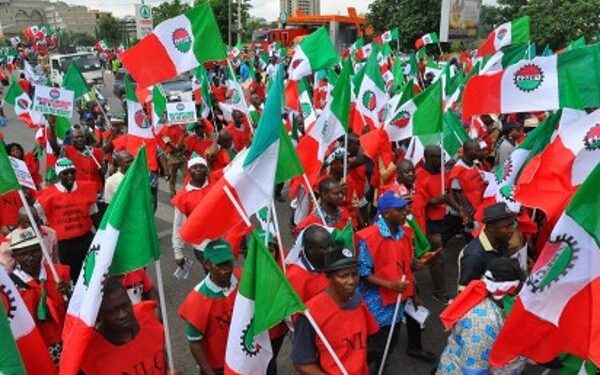News
Fuel Price: Reject World Bank N750/Litre Proposal, NLC Warns FG

The Nigeria Labour Congress (NLC) on Thursday cautioned the Federal Government against implementing the World Bank recommendation of increasing the pump price of Premium Motor Spirit (PMS), otherwise known as petrol or fuel to N750 per litre.
The World Bank had on Wednesday, asked the President Bola Tinubu-led government to stop the subsidy payment on petrol and raise the cost of the product to N750/litre.
It said the Federal Government might still be paying the subsidy as fuel prices in Nigeria were currently not cost-reflective, stressing that Nigerians should pay about N750/litre for PMS as against the current price of N650/litre.
This came as oil marketers explained that the cost of PMS should be around N1,000/litre had it been that the government not subsidising the product.
But the government, on Thursday, denied the claims of marketers and the World Bank as regards the reintroduction of subsidy on petrol in Nigeria.
The World Bank, on Wednesday, asked the Federal Government to stop the subsidy payment on petrol and raise the cost of the product to N750/litre.
It said the Federal Government might still be paying the subsidy as fuel prices in Nigeria were currently not cost-reflective, stressing that Nigerians should pay about N750/litre for PMS as against the current price of N650/litre.
The World Bank’s lead economist for Nigeria, Alex Sienaert, alleged the continuous payment of petrol subsidy by the government in Abuja during his presentation of the Nigeria Development Update, December 2023 Edition.
“It does seem like petrol prices are not fully adjusting to market conditions. So, that hints at the partial return of the subsidy if we estimate what is the cost reflective of the retail PMS price of the would-be and assume that importation is done at the official FX rate.
“Of course, the liberalisation is happening with the parallel rates, which is the main supplier, the price would be even higher. These are just estimates to give you a sense of what cost-reflective pricing most likely looks like.
“We think the price of petrol should be around N750/litre more than the N650/litre currently paid by Nigerians,” he stated.
Reacting to the statement of the World Bank, the labour movement declared that a further hike in the price of fuel would be an automatic invitation to anarchy.
The NLC’s Head of Information, Upah, described the World Bank as a predatory institution that does not care about the welfare of Nigerians, stressing that the initial increment in the pump price of PMS had caused enough problems in Nigeria.
“The World Bank is globalist north in thoughts and actions and has little or no consideration for the global south. It is a predatory institution that the global north uses to justify its crimes against the south.
“It is almost single-handedly responsible for the ruination of the economies of countries of the global south for which it prescribes one solution for all ailments.
“It does not care what happens to Nigeria or Nigerians so it could from its perch in Washington say whatever it likes or push around our leaders like house helps.
“The truth, however, remains that the present regime of the pump price of PMS has all but destroyed the country. To now ask the government to raise it to N750/litre is to invite anarchy upon the land.
“The World Bank is so hypocritical it fails to see the nexus between price and capacity. The minimum wage in Nigeria for a privileged few is N30,000. The same minimum wage in the United States where the law is enforced is N1.5m.
“In light of this, if the government knows what is good for it, it should ignore the World Bank but must remain committed to fighting inherent corruption in the downstream sector of the petroleum industry. It must also cut down the high cost of governance.”
But the Federal Government denied the claims of the World Bank on the continued payment of the fuel subsidy on petrol.
In an interview on Channels Television on Thursday, the Minister of Information and National Orientation, Mohammed Idris, said President Bola Tinubu had made it clear from his first day in office that his government would not sustain the payment of subsidy on petrol.
According to Idris, the removal of the petrol subsidy had led to an increase in the revenue accruing to the Federation Account.
“Subsidy is gone, and the President told Nigerians from his first day in office that there won’t be subsidy (on petrol). It is because subsidy has gone that we have so much money available for the government to do so many things. Of course, it’s never enough, but fuel subsidy is gone and it’s gone for good,” the minister stated.
He added, “There are instances where the government needs to come in to see that things don’t go so bad. That’s the responsibility of the government. Every rule will also have its self-adjusting mechanism, but I can assure Nigerians that the subsidy is gone.
“If you look at the monies accruing to the Federation Account and the kind of money the states are receiving, you would know that everybody desires that subsidy should go. What do we do with that subsidy, I think, is the next question. We need to scrutinise that so that Nigerians would benefit from the subsidy that has been taken away. Subsidy is gone.”

